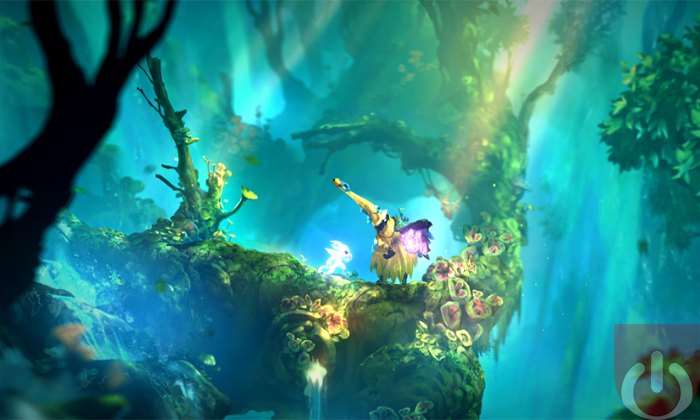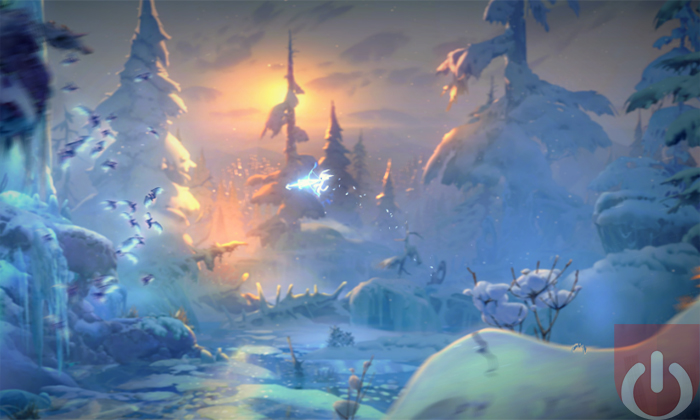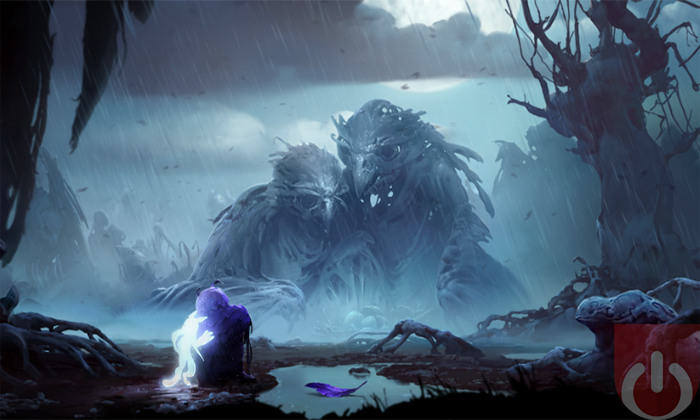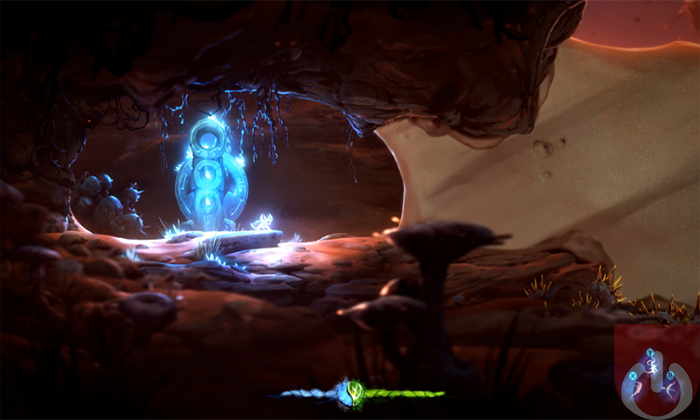Ori and the Will of the Wisps
It’s hard to believe it’s been about five years since Microsoft first released Ori and the Blind Forest. It was a magical platformer that took the whole Metroidvania motif into the woods with stunning results. Last year, the game hit the Nintendo Switch as well, giving even more players the chance to experience this gem. Ori is finally back for a proper sequel and developer, Moon Studios, seems to have spent that time refining the genre as a whole and contemplating what it takes for a sequel to distinguish itself from the original without losing what made it special.
Ori and the Will of the Wisps, just as Blind Forest before it, is a stunningly beautiful and atmospheric fairy tale. Ori is a forest spirit trying to save his little world for both himself and the many adorable and strange denizens of the woods. Like any game of this type, much of the plot details focus on keeping Ori moving from place to place looking for new abilities that can be used to unlock new areas.
From a gameplay and overall design perspective, Ori follows the Metroidvania blueprint pretty tightly. Where Ori succeeds is in both understanding what makes this type of game so loved and focusing on an incredible presentation and tight controls. Reviewing Will of the Wisps on the Xbox One X, the game is stunning in 4K HDR running at 60FPS. At lower resolutions, it’s still a visual wonder though.
Gorgeous scenery permeates the game through deep, somber woods, treacherous caverns, underwater caves, old temples, and more. Character design and animation are stunning. Ori’s motions are seamless and frequently adorable. Likewise, standard enemies, giant bosses, and side characters all look great and move smoothly.
Add in Gareth Coker’s superb score and evocative ambient soundtrack, and Ori and the Will of the Wisps is just an amazingly polished piece of work. Granted, a great presentation is only part of the package. If you’ve played the first Ori, the sequel will feel instantly familiar.
Ori, some kind of absurdly cute ghostly cat-weasel thing, leaps and runs as if he was escaping a Disney movie. Soon enough, he’ll have a slashing attack, be able to climb walls, double jump, use special attacks, and even launch himself from enemies, projectiles and grapple spots. Major new abilities come from absorbing the energy of spirit trees, but there is an array of special upgradable powers to both find and purchase.
These secondary powers vary wildly: an energy bow, throwing star, extra health, damage or spiritual energy, even a triple jump. These abilities can usually be upgraded and fit into Ori’s limited number of ability slots. You can interchange them at will to suit the situation and it adds a minor if interesting layer of strategic thinking.
At a certain point, you’ll encounter a builder who asks for help collecting special ore he needs to build helpful structures (like a spirit well that heals and recharges Ori). It’s a relatively minor addition and a little reminiscent of how Super Mario Maker 2 handles building. Basically, you collect enough ore, pick a structure from a list, and it gets built. So, no worries of weird Fallout 4 or Ark levels of building.
Ori and the Will of the Wisps carries over the first game’s darker overtones. Like a traditional fairy tale, these woods are not for the faint of heart. This is, at heart, a story of a dying land and how it affects the survivors. Elements of bleakness permeate through the entire game, which adds an effective urgency to the gameplay. Essentially, it’ll surprise people who assumed that a platformer with a cute animal protagonist was just for kids.
About midway through is a sequence so memorably bleak and emotional it’s liable to elicit tears from the player. It’s stunning from both a narrative and technical perspective and leads to the game shifting to an entirely new set of goals that greatly expands on what players thought the confines of the game world was. Dark tones aside, the game is certainly one that can be enjoyed by a wide audience.
Just be prepared for some incredible challenges. The original Ori was brutally hard in spots, including one memorable flooding sequence that was so intensely difficult it felt physically exhausting. While controls are precise, there are spots calling for near pixel-perfect movement combinations.
Will of the Wisps actually seems better balanced than Blind Forest. Reaching every hidden treasure will take some creative effort, but the overall game feels tough but fair. The flooding sequence returns as well and is far more visceral while still being slightly less taxing on the gamer’s mental (and physical) well-being. Still, there are definite times when Ori feels physically exhausting to play thanks to the intensity of the challenges and after a while, I became worried for the health of my control pad.
Ori and the Will of the Wisps is a wonderful example of how a classic genre can merge perfectly with new technology. Aside from the difficulty level, nothing about Ori feels particularly retro, which is a nice change of pace from the usual obsession with old school graphics going with those old school mechanics. Ori is beautiful, challenging, and thoroughly entertaining.
Gameplay:
9
Ori and the Will of the Wisps is surprisingly better than it's predecessor. It still has its frustrating segments though.
Graphics:
9
The game is gorgeous.
Sound:
9
Gareth Coker’s score is superb.
Replay Value:
7
Secrets abound. That said, the base game is entertaining enough to keep playing post credits.
Final Score:
8.5




